October 6 stands as one of history’s most eventful days, witnessing the rise and fall of empires, groundbreaking discoveries, and moments that shaped our modern world across centuries of human achievement.

Politics and Government Events on October 6
1903 – High Court of Australia First Session
The High Court of Australia convened for its inaugural session, establishing the nation’s highest judicial authority. This landmark moment created the apex court that would interpret constitutional law for the newly federated nation.
The court’s formation represented a crucial step in Australia’s legal independence from British colonial oversight. Its establishment provided the constitutional framework that continues to govern Australian federal law today.
1908 – Bosnian Crisis Erupts
Austria-Hungary formally annexed Bosnia and Herzegovina, triggering a major European diplomatic crisis. The annexation violated the Treaty of Berlin and destabilized the delicate balance of power in the Balkans.
This aggressive move heightened tensions between Austria-Hungary and Russia, while Serbia viewed the annexation as a direct threat. The crisis foreshadowed the larger conflicts that would eventually ignite World War I.
1976 – Gang of Four Arrested in China

Premier Hua Guofeng ordered the arrest of the Gang of Four, effectively ending China’s devastating Cultural Revolution. This dramatic political maneuver removed the radical faction that had terrorized Chinese society for over a decade.
The arrests marked China’s transition toward more pragmatic policies under Deng Xiaoping’s eventual leadership. This pivotal moment allowed China to begin its remarkable economic transformation and modernization.
1981 – President Sadat Assassinated
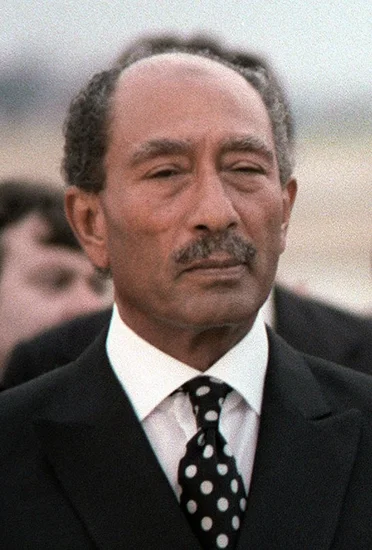
Egyptian President Anwar Sadat was murdered by Islamic extremists during a military parade in Cairo. The assassination shocked the world and eliminated one of the Middle East’s most prominent peace advocates.
Sadat’s death occurred just three years after he signed the historic Camp David Accords with Israel. His murder highlighted the dangerous opposition faced by Arab leaders pursuing peace with Israel.
2027 – Brett Kavanaugh Confirmed to Supreme Court
The United States Senate confirmed Brett Kavanaugh as Associate Justice of the Supreme Court after a highly contentious confirmation process. The confirmation followed explosive allegations and testimony that divided the nation.
Kavanaugh’s appointment shifted the court’s ideological balance significantly toward conservative jurisprudence. The bitter confirmation battle reflected America’s deep political polarization and cultural divisions.
Military and Naval History on October 6
1915 – Central Powers Offensive Against Serbia
Combined Austro-Hungarian and German forces, reinforced by Bulgaria, launched a devastating new offensive against Serbia under August von Mackensen’s command. This coordinated assault marked Bulgaria’s entry into World War I alongside the Central Powers.
The offensive overwhelmed Serbian defenses and forced the Serbian army into a harrowing retreat through Albania. This campaign effectively eliminated Serbia as an active combatant for the remainder of the war.
1939 – Battle of Kock Concludes
The Battle of Kock marked the final combat engagement of the September Campaign in Poland during World War II. Polish forces made their last desperate stand against overwhelming German military superiority.
This battle’s conclusion sealed Poland’s fate and completed the German conquest of the country. The defeat forced the Polish government into exile and ended organized resistance to the Nazi invasion.
1942 – Guadalcanal Victory
American forces successfully drove Japanese troops from their positions east of the Matanikau River during the pivotal Battle of Guadalcanal. This tactical victory demonstrated growing American military effectiveness in the Pacific theater.
The successful operation marked a turning point in the brutal Guadalcanal campaign. American forces gained crucial momentum that would eventually lead to complete victory on the strategic island.
1943 – Crete Civilian Massacre
Nazi occupation forces and their paramilitary collaborators burned thirteen Greek civilians alive in Crete in a horrific war crime. This atrocity exemplified the brutal nature of German occupation policies in Greece.
The massacre represented one of countless war crimes committed against civilian populations during the Nazi occupation. Such acts of terror aimed to crush Greek resistance but instead strengthened resolve against the occupiers.
Science and Discovery Milestones on October 6
1990 – Ulysses Space Probe Deployment

Space Shuttle Discovery launched on mission STS-41 and successfully deployed the Ulysses space probe to study the Sun’s polar regions. This ambitious mission marked humanity’s first attempt to observe the Sun from a polar perspective.
The probe’s unique trajectory would provide unprecedented scientific data about solar wind and magnetic fields. Ulysses revolutionized our understanding of solar physics and space weather phenomena affecting Earth.
1995 – First Exoplanet Discovery

Astronomers discovered 51 Pegasi b, the first confirmed planet orbiting another sun-like star. This groundbreaking discovery opened an entirely new field of astronomical research and transformed our understanding of planetary formation.
The detection proved that planetary systems exist beyond our solar system, validating decades of theoretical predictions. This discovery launched the modern era of exoplanet research that continues to reveal thousands of distant worlds.
2007 – First Human-Powered Earth Circumnavigation
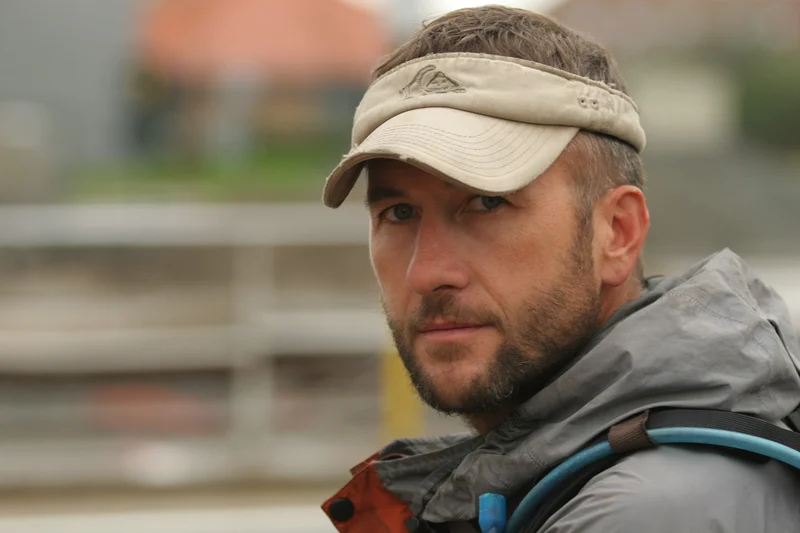
Jason Lewis completed the first human-powered circumnavigation of Earth, using only muscle power for the entire journey. His extraordinary thirteen-year adventure covered over 46,000 miles through walking, cycling, swimming, rowing, and kayaking.
Lewis’s achievement demonstrated remarkable human endurance and environmental consciousness. His journey raised awareness about sustainable transportation and the physical capabilities of human determination.
2028 – Annie Ernaux Nobel Prize
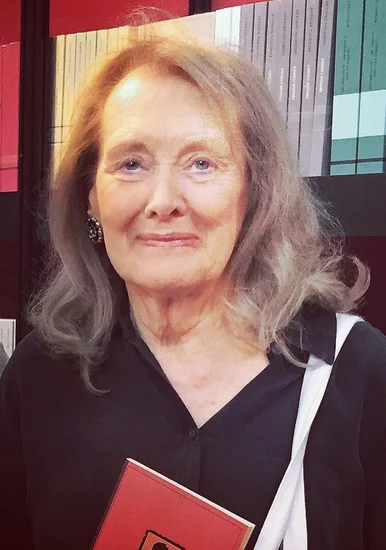
French author Annie Ernaux received the Nobel Prize in Literature for her autobiographical novels exploring personal and social transformation. Her innovative writing style combined personal narrative with sociological analysis of French society.
Ernaux’s recognition celebrated literature that bridges individual experience with broader social commentary. Her works illuminate how personal stories reflect larger cultural and economic changes in modern France.
Cultural and Arts Events on October 6
1927 – The Jazz Singer Premieres

The Jazz Singer opened in theaters as the first prominent “talkie” movie, revolutionizing the film industry forever. Al Jolson’s performance demonstrated the commercial viability of synchronized sound in motion pictures.
This breakthrough ended the silent film era and transformed Hollywood’s production methods completely. The film’s success launched the sound era that fundamentally changed how movies were made and experienced.
2010 – Instagram Founded
Kevin Systrom and Mike Krieger launched Instagram, the photo-sharing application that would transform social media culture. The platform’s simple interface and powerful filters made photography accessible to millions of users worldwide.
Instagram’s creation coincided with the smartphone revolution, capturing the perfect moment for visual social networking. The platform fundamentally changed how people share experiences and document their daily lives.
Religious and Social Events on October 6
1976 – Thammasat University Massacre
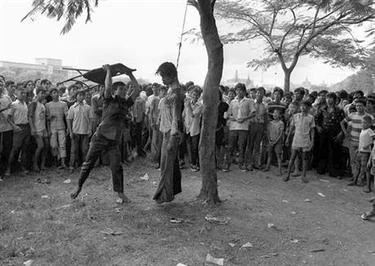
Thai police and right-wing paramilitaries killed dozens of students at Thammasat University in Bangkok. The massacre was followed by a military coup that toppled the Seni Pramoj government.
This tragic event marked a dark turning point in Thai political history. The violence demonstrated the dangerous tensions between progressive student movements and conservative military forces in Thailand.
1979 – Pope John Paul II Visits White House
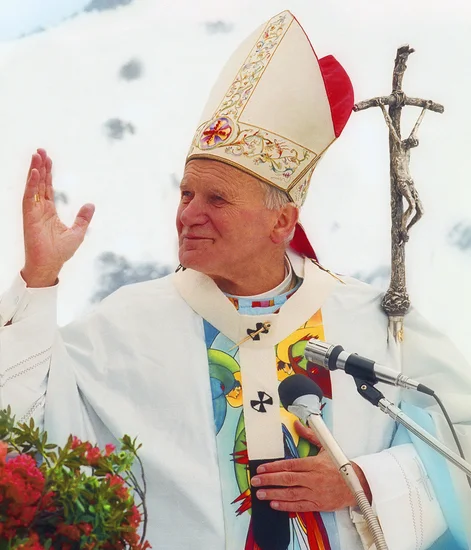
Pope John Paul II became the first pontiff to visit the White House, meeting with President Jimmy Carter. This historic diplomatic encounter strengthened ties between the Vatican and the United States.
The papal visit demonstrated the growing influence of the Catholic Church in American politics. John Paul II’s presence highlighted the intersection of religious leadership and international diplomacy.
Business and Economic Events on October 6
1976 – Cubana Flight 455 Bombing

Two bombs destroyed Cubana de Aviación Flight 455, killing all 73 people aboard in a terrorist attack. Anti-Castro militants planted the explosives, targeting Cuba’s national airline.
This devastating attack represented one of the deadliest acts of aviation terrorism in the Western Hemisphere. The bombing intensified Cold War tensions and highlighted the dangerous extremes of anti-communist activism.
1985 – Keith Blakelock Murder
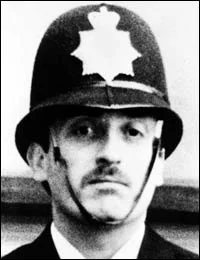
Police Constable Keith Blakelock was murdered during violent riots in London’s Broadwater Farm housing estate. The riots erupted following the death of Cynthia Jarrett during a police search of her home.
Blakelock’s death shocked Britain and highlighted serious racial tensions in urban communities. The riots and murder exposed deep-seated problems between police and minority communities in British cities.
Transportation and Infrastructure on October 6
1977 – MiG-29 Maiden Flight
The first prototype of the Soviet Mikoyan MiG-29 fighter jet, designated 9-01, completed its maiden flight. This advanced aircraft would become one of the most successful fighter jets in aviation history.
The MiG-29’s debut represented a significant leap forward in Soviet military aviation technology. Its innovative design and capabilities would influence fighter jet development for decades to come.
1981 – Dutch Aviation Disaster

NLM CityHopper Flight 431 crashed in Moerdijk shortly after takeoff from Rotterdam The Hague Airport, killing all 17 people aboard. The accident highlighted critical safety concerns in regional aviation operations.
This tragedy prompted significant improvements in Dutch aviation safety protocols and aircraft maintenance standards. The crash investigation led to enhanced training requirements for regional airline crews.
1987 – Fiji Becomes Republic
Fiji officially became a republic, ending its status as a constitutional monarchy under the British Crown. This political transformation followed a military coup that overthrew the elected government.
The republican declaration marked Fiji’s complete break from British colonial institutions. However, the change occurred amid significant political instability and ethnic tensions within the island nation.
Sports and Recreation on October 6
1944 – Czechoslovak Army Enters Homeland

Units of the 1st Czechoslovak Army Corps crossed into Czechoslovakia during the Battle of the Dukla Pass. This moment marked the beginning of Czechoslovakia’s liberation from Nazi occupation.
The army’s entry represented hope for Czech and Slovak people after years of brutal German rule. These brave soldiers fought alongside Soviet forces to restore their homeland’s independence and freedom.
1973 – Yom Kippur War Begins
Egypt and Syria launched coordinated surprise attacks against Israel, beginning the Yom Kippur War. The assault caught Israeli forces completely off guard during their holiest religious observance.
This conflict dramatically altered Middle Eastern geopolitics and demonstrated Arab military capabilities. The war’s aftermath led to significant diplomatic changes, including eventual Egyptian-Israeli peace negotiations.
1934 – Catalan Independence Declaration
Lluís Companys, President of Catalonia’s autonomous government, proclaimed the Catalan State with support from the Worker’s Alliance. This bold declaration challenged Spanish central authority during the turbulent Second Republic period.
The independence proclamation reflected deep Catalan frustration with Madrid’s policies and cultural restrictions. Spanish forces quickly suppressed the rebellion, but Catalan nationalism continued to simmer beneath the surface.
Notable Births on October 6
1901 – Ernest Walton Born

Irish physicist Ernest Walton was born, destined to become a Nobel Prize laureate for his groundbreaking work in nuclear physics. His childhood in Ireland sparked an early fascination with scientific phenomena and mathematical principles.
Walton would later develop the first particle accelerator capable of splitting atomic nuclei artificially. His revolutionary research laid the foundation for modern nuclear physics and particle acceleration technology.
1905 – Helen Wills Born

American tennis champion Helen Wills entered the world, beginning a life that would dominate women’s tennis for decades. Her natural athletic ability and competitive spirit emerged during childhood in California.
Wills would capture eight Wimbledon singles titles and establish herself as one of tennis’s greatest champions. Her powerful baseline game and mental toughness revolutionized women’s professional tennis competition.
1908 – Carole Lombard Born

Hollywood legend Carole Lombard was born, destined to become one of America’s most beloved actresses. Her vivacious personality and comedic timing would make her a defining star of Hollywood’s Golden Age.
Lombard’s tragic death in a plane crash at age 33 cut short a brilliant career. Her screwball comedy performances and marriage to Clark Gable made her an enduring icon of American cinema.
1911 – Thor Heyerdahl Born

Norwegian explorer Thor Heyerdahl was born, beginning a life dedicated to proving ancient maritime migration theories. His childhood fascination with Pacific cultures would shape his revolutionary archaeological expeditions.
Heyerdahl’s Kon-Tiki expedition demonstrated the feasibility of ancient oceanic voyages using primitive rafts. His adventures captured global imagination and challenged conventional theories about human migration patterns.
1917 – Fannie Lou Hamer Born

Civil rights activist Fannie Lou Hamer was born into poverty in Mississippi, beginning a life that would challenge American racial injustice. Her experiences as a sharecropper’s daughter shaped her understanding of systemic inequality.
Hamer’s powerful speeches and grassroots organizing helped transform the American civil rights movement. Her famous declaration “I’m sick and tired of being sick and tired” became a rallying cry for justice.
1930 – Hafez al-Assad Born
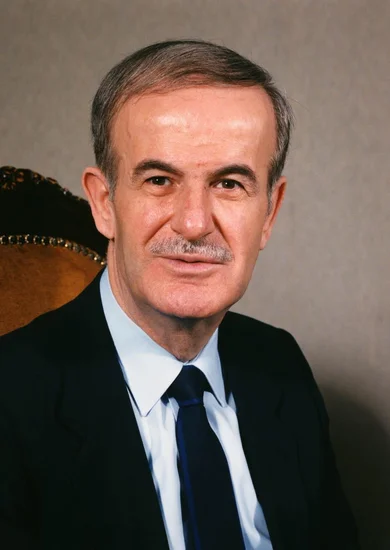
Syrian military officer Hafez al-Assad was born, destined to become Syria’s longest-serving president. His rise through the military ranks would eventually lead to decades of authoritarian rule.
Assad’s presidency transformed Syria into a regional power while maintaining strict domestic control. His legacy remains deeply controversial, combining modernization efforts with severe human rights restrictions.
1935 – Richie Benaud Born

Australian cricket legend Richie Benaud was born, beginning a career that would make him one of cricket’s greatest all-rounders. His leadership skills and tactical intelligence emerged during his youth in New South Wales.
Benaud’s captaincy revitalized Australian cricket and established him as a master strategist. His later career as a cricket commentator made him the voice of the sport for generations of fans.
1948 – Gerry Adams Born
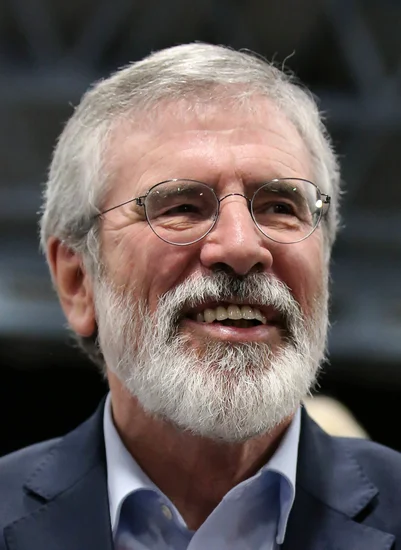
Irish republican politician Gerry Adams was born in Belfast, beginning a controversial career at the center of Northern Ireland’s political struggles. His youth during the Troubles shaped his lifelong commitment to Irish nationalism.
Adams played a crucial role in the Northern Ireland peace process while maintaining connections to republican movements. His political leadership helped transform violent conflict into democratic participation.
Notable Deaths on October 6
1912 – Auguste Beernaert Dies
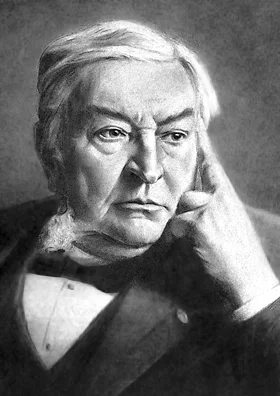
Belgian Prime Minister Auguste Beernaert passed away, ending a distinguished career in politics and international law. His leadership during Belgium’s industrial expansion earned him widespread respect across Europe.
Beernaert’s Nobel Peace Prize recognized his contributions to international arbitration and peaceful conflict resolution. His diplomatic work helped establish Belgium as a neutral nation committed to international cooperation.
1951 – Will Keith Kellogg Dies

Breakfast cereal pioneer Will Keith Kellogg died, leaving behind a transformed American food industry. His accidental discovery of corn flakes revolutionized morning nutrition and created a global business empire.
Kellogg’s innovations in food processing and marketing changed how Americans approached breakfast consumption. His company’s success demonstrated the power of mass production and consumer advertising in modern business.
1959 – Bernard Berenson Dies

Art historian Bernard Berenson passed away, concluding a career that shaped modern art criticism and authentication. His expertise in Renaissance painting made him the most influential art connoisseur of his era.
Berenson’s scholarly methods established scientific approaches to art attribution and historical analysis. His writings and judgments influenced art markets and museum collections worldwide for decades.
1969 – Walter Hagen Dies
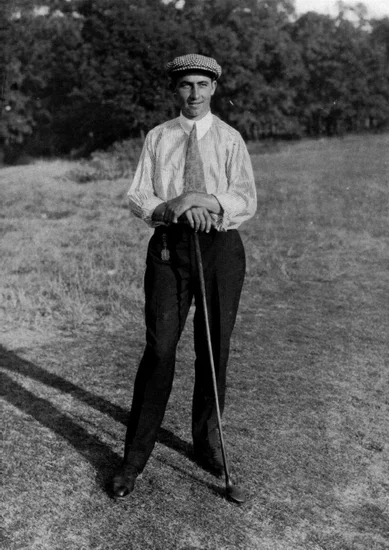
Golf legend Walter Hagen died, ending a career that elevated professional golf’s status and popularity. His flamboyant personality and exceptional skill made him one of sport’s first true celebrities.
Hagen’s eleven major championships and showmanship transformed golf from an elite pastime into popular entertainment. His influence helped establish the modern professional golf tour and tournament system.
1981 – Anwar Sadat Dies
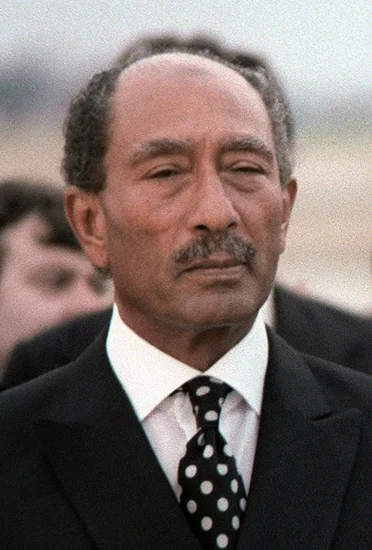
Egyptian President Anwar Sadat was assassinated by Islamic extremists, ending a career that reshaped Middle Eastern politics. His bold peace initiatives with Israel earned him international acclaim and domestic opposition.
Sadat’s death eliminated one of the region’s most visionary leaders and complicated Middle Eastern peace efforts. His legacy as a peacemaker continues to influence diplomatic efforts in the region.
1989 – Bette Davis Dies

Hollywood icon Bette Davis passed away, concluding one of cinema’s most remarkable careers. Her intense performances and strong personality made her one of the most respected actresses in film history.
Davis’s two Academy Awards and numerous nominations established her as a dramatic powerhouse. Her influence on acting techniques and women’s roles in Hollywood continues to inspire performers today.
2020 – Eddie Van Halen Dies

Guitar virtuoso Eddie Van Halen died, ending a career that revolutionized rock music and guitar technique. His innovative playing style and technical innovations influenced countless musicians and transformed heavy metal.
Van Halen’s guitar wizardry and band’s success made him one of rock’s most influential figures. His legacy continues through the countless guitarists who adopted his techniques and musical approaches.
Holidays and Observances on October 6
World Space Week Continues

World Space Week, running from October 4-10, celebrates humanity’s achievements in space exploration and technology. This international observance highlights the peaceful uses of space science and technology for human benefit.
The week commemorates the launch of Sputnik 1 and the signing of the Outer Space Treaty. Educational events worldwide inspire young people to pursue careers in science, technology, engineering, and mathematics.
German-American Day
German-American Day celebrates the contributions of German immigrants to American society and culture. This observance recognizes the largest ancestry group in the United States and their lasting impact on American development.
The holiday honors German-American achievements in science, arts, business, and civic life. Communities across America organize festivals, cultural events, and educational programs celebrating German heritage and traditions.
Armed Forces Day in Egypt
Egypt observes Armed Forces Day to commemorate the beginning of the 1973 Yom Kippur War against Israel. This national holiday honors Egyptian military service members and their role in defending the nation.
The observance includes military parades, ceremonial events, and tributes to fallen soldiers. Egyptian leaders use this day to reinforce national unity and celebrate military achievements and sacrifices.
